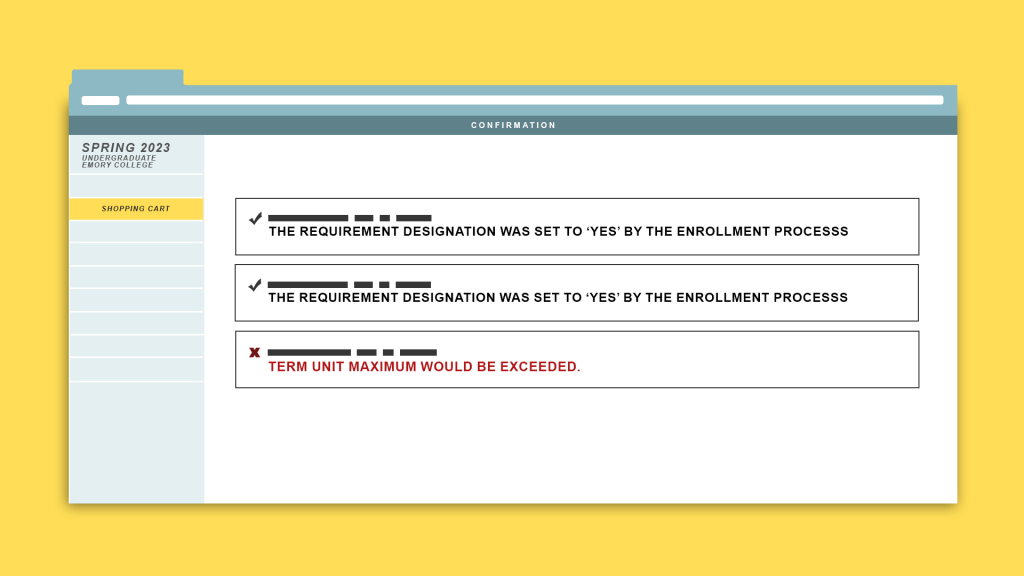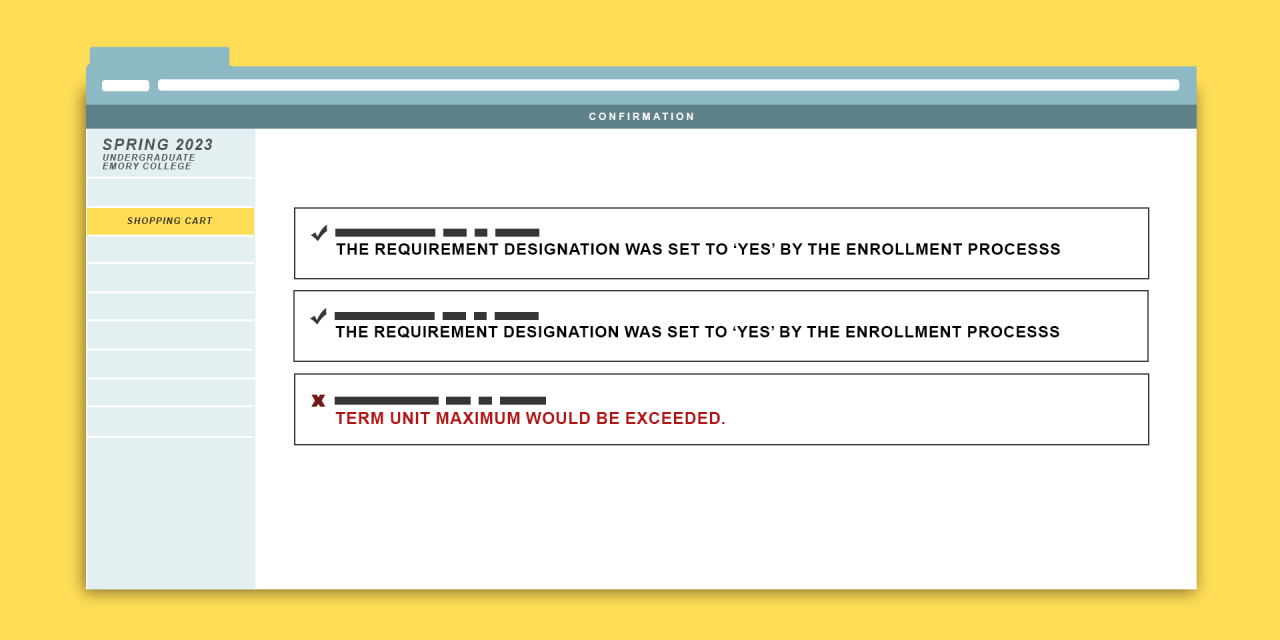The maximum number of credit hours students can take in one semester has dropped from 22 to 19 for students in Emory College, Oxford College and the Nell Hodgson Woodruff School of Nursing, and 20 for students in Goizueta Business School. Emory University Provost and Executive Vice President for Academic Affairs Ravi Bellamkonda announced the decision in an email to students on Oct. 13.
Emory implemented this new policy, which already went into place for spring 2023 course registration, to support the University’s commitment to holistic learning and “reduce academic burnout,” Bellamkonda wrote in an email to the Wheel.
“The recent changes to course load policies encourage students to fully engage inside and outside the classroom, supporting both professional development and personal well-being,” Bellamkonda wrote. “While this is only one of many avenues we are taking to improve the student experience, we believe prioritizing holistic learning, student engagement and overall wellbeing will make Emory a more robust and healthier institution.”

Mia Usman/Staff Illustrator
Bellamkonda stated in the Oct. 13 email that the new policy’s benefits are threefold. First, reducing the credit cap will allow students to engage more deeply in each course. Second, the new policy will also enable current students to become involved in more out-of-class experiences. And finally, it prioritizes student well-being.
Credits for classes such as music practice, physical education and internships will not count toward the new credit limits, Bellamkonda noted. He added that although students can appeal to take more credits, exceptions will be “rare.”
Student Government Association (SGA) President Noah Marchuck (24C), Vice President Aditi Vellore (21Ox, 23C) and Ranking Member Khegan Meyers (24B) expressed dissatisfaction with not being consulted on the decision.
Not only was SGA not consulted on this issue, Marchuck stated, but to his knowledge, no student feedback was involved in the decision.
Vellore explained that the University administration is planning on garnering more student feedback through focus groups, surveys and conversations before making campus-wide decisions impacting students in the future.
“We are engaging student groups on this policy change, and while many have conveyed support for this effort, we have also heard students’ concerns and their desire to participate in shaping the academic experience,” Bellamkonda wrote. “As we continue to holistically review our policies and processes, we look forward to working with students to identify opportunities to enhance their experience, learning and overall success.”
While Marchuck, Vellore and Meyers have differing opinions on certain aspects of the decision — including if it is worthwhile to fight the decision or whether to push the University to communicate with SGA in the future — they all agree that the University did not roll out the new policy effectively. Meyers stated that the messaging was confusing because it seemed like this was only for incoming first-year students, but the new credit cap goes into effect next semester.
Although they weren’t consulted about the decision, the SGA members have speculated that the new credit cap was established to alleviate mental health concerns. Meyers referenced the American News Report that ranks Emory No. 4 out of the most depressed universities in the United States.
Psychology Lecturer Andrew Kazama agreed that mental health may have been a factor in the decision to implement the new credit cap.
“Student mental health is a huge concern, so my guess is that the administration is doing what it can from the top-down to relieve some of the academic pressures that students are placing on themselves,” Kazama wrote in an email to the Wheel.
When asked for better ways to improve student mental health, both Vellore and Meyers suggested lowering student stress by decreasing the rigor of classes. Meyers said that someone could take “an easy” 22-credit schedule, and another student could take a 17-credit schedule that is much more challenging.
Mental health can be improved by increasing instruction quality and professor organization, Meyers said. Vellore recommended extending the pass-fail deadline, which she believes is “imposed too strictly.”
Meyers added that Emory’s mental health resources — which have been critiqued by students — are likely why the University’s decision has been met with such dismay.
“Emory has flubbed a lot of its student mental health response because it cannot establish trust with the student body,” Meyers said, referring to conversations he had with his peers about deaths on campus last year. He explained that some students were “upset” that the University administration did not seem to acknowledge the deaths.
Kazama believes that while this decision will benefit students, there may be unintended consequences.
“This may relieve some of the pressures that students are placing,” Kazama wrote. “I do worry about unintended consequences where students feel more pressure because they are worried about finishing all their courses on time.”
Other students, including Ben Goldman (26C), echoed the SGA members’ concerns.
“I’m personally not planning on taking over 19 credits, but I think that it’s unjust that the University is preventing those who want to take on a larger workload from doing so,” Goldman said.
Jason Huang (26C) called the new policy “quite possibly one of the most despicable decisions ever made.”
“This really hurts students trying to graduate early or those double majoring,” Huang said.
Update (10/27/22 at 3:37 p.m.): A previous version of this article stated that Provost and Executive Vice President for Academic Affairs Ravi Bellamkonda said the new policy’s benefits are twofold. In fact, he said the benefits are threefold, as the policy also “prioritizes student well-being.”
Spencer Friedland (26C) is from Long Island, New York and is the Emory Wheel's Managing News Editor. He is a Philosophy, Politics and Law major and has a secondary major in Film. Spencer is also a part of the Franklin Fellows program at Emory.





